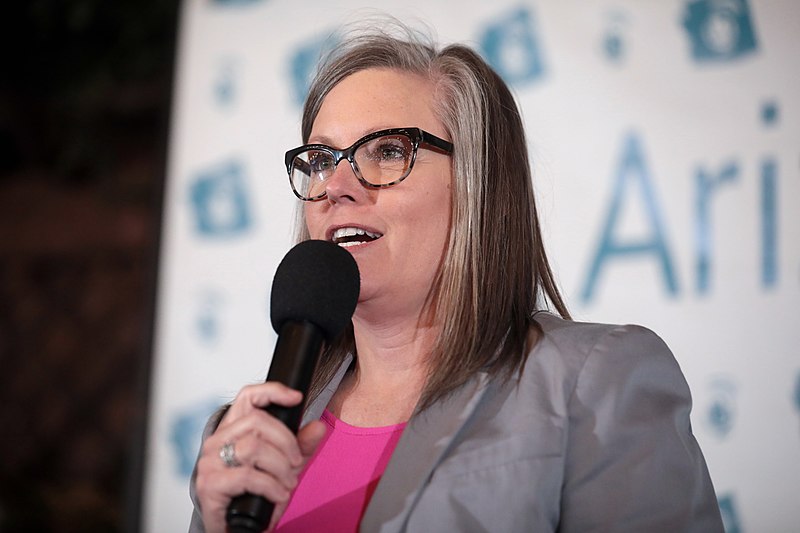- 14 3402-5578
- Rua Hygino Muzy Filho, 737, MARÍLIA - SP
- contato@latinoobservatory.org
 Gage Skidmore from Surprise, AZ, United States of America
Gage Skidmore from Surprise, AZ, United States of America
The bill, which aimed to make crossing the border without authorization a state crime, was vetoed by Arizona's Democratic governor, Katie Hobbs. Hobbs justified her veto, stating that the bill would not protect the border, would be harmful to communities, and could violate the U.S. Constitution by attempting to take exclusive powers from the federal government. The veto halted efforts by Republicans in Arizona to enact stricter immigration legislation, specifically through a bill called the "Arizona Border Encroachment Act," according to a report by Latin Times.
The Arizona bill is similar to Texas legislation, SB4, which was suspended by the U.S. Supreme Court after a request from the Department of Justice. There are also other immigration-related bills that are being debated in the state, such as one that could allow farmers and ranchers to shoot migrants who invade their properties.
Republicans defend their proposals as necessary responses to a supposed "border invasion", a phrase some party members have used to describe the influx of migrants across the U.S.-Mexico border. However, the Latin Times report points out that recent studies indicate that the majority of fentanyl smuggled into the United States enters legally through ports of entry, not through illegal border crossings.
Hobbs' veto sparked polarized reactions, with Republicans criticizing her decision as a perpetuation of the border crisis and Democrats praising it as a measure to prevent the situation from escalating.
In the political and demographic context of Arizona, it is important to highlight the significant role of Latinos in politics and policymaking, especially after the state's turnaround in 2020, with 74% of Latinos who voted to choose Biden.
Democratic Rep. Analise Ortiz's comments to the
Latin Times suggest a growing mobilization and political activism among Latino
communities in response to Republicans' anti-immigration efforts.











